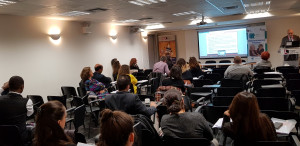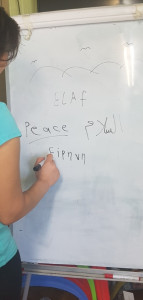 «Today I can say for sure that I should have started my lessons in Greek earlier»
«Today I can say for sure that I should have started my lessons in Greek earlier»
Ilaf is 19 years old and since 2017, she has been living in Greece. She comes from Iraq and her native language is Sorani. In the end of 2016, she decided to leave Iraq with her family, being already married and pregnant on her first child. The undergoing war between two tribes at the area of her origin, as well as her pregnancy, were the main reasons that made her leave her country for Europe. Ilaf left Iraq with her husband and his own family (father, mother and sister), with the unique initial desire to be able to live in safety.
After several attempts, they arrived in Greece. In the meantime, Ilaf had given birth and her baby girl was already four months old. Since for the Greek authorities Ilaf was still a minor, they all initially stayed in a hosting camp in Orestiada. After she became an adult, they were all sent to the refugee camp, where they are settled nowdays. In the beginning, everything was difficult for her, in Greece. On her first walks around Athens and outside the refugee camp, she visited Omonia Square. The scenery and images, made her realize the need for herself and her family to integrate into the local community, in an attempt to make the future they dreamed of when leaving Iraq, come true. Starting Greek language courses was a first step towards this direction.
llaf said: “Today I can say for sure that I should have started my lessons in Greek earlier. However, even now, I’m glad that I was able to take part in your WEMIN lessons”. Participating in the courses and starting learning Greek, made possible to have small talks with local people on everyday issues.
In addition, empowerment sessions have helped her to use the appropriate vocabulary depending on the various places and settings, like in a hospital or in services units. Now, she feels more comfortable when shopping in the market and even when visiting a doctor for her daughter. Being so pleased with her achieved progress, she says enthusiastically: “Βy learning the Greek language, I am happy to be able to show you that I appreciate what you have done for me. In fact, I urge all women who want to stay in Greece, no matter how busy they are, to make the decision to participate in Greek lessons. Their efforts will be rewarded”. It is a fact that WEMIN interventions have helped Ilaf to regain her self-confidence, seek better living conditions for herself and her family, and most important, keep on dreaming! Her next goal has already been set: after WEMIN actions are completed, she plans to enroll in a hairdressing school so as, to become a hairdresser and work as such in the future.
Last but not least, a permanent and absolute priority for Ilaf is raising her daughter in the best way! As she explained, when a woman starts her own family in Iraq, her entire life is devoted in raising her children. Ilaf hopes to do well in both, accomplishing her daughter’s upbringing and achieving her personal goals!
You can be informed about “WEMIN: Migrant Women Empowerment and Integration” implementation by visiting, www.wemin-project.eu / Follow #WEMIN
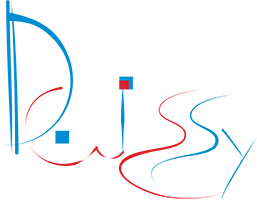
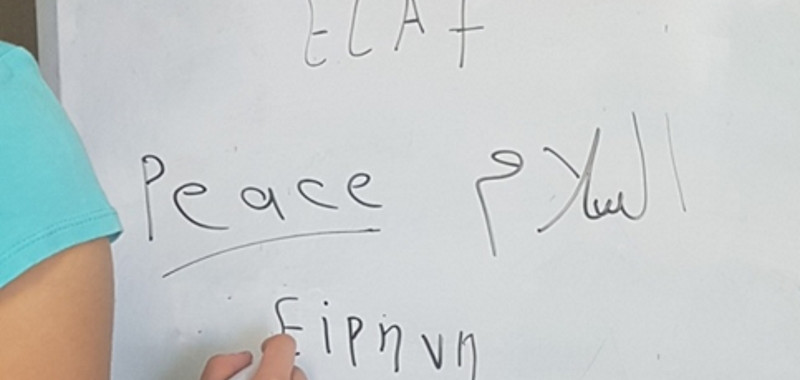
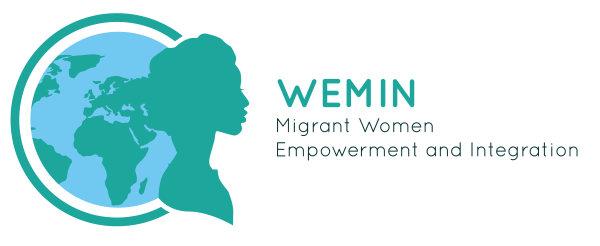
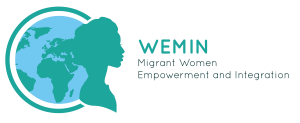 Sharife is a woman from Afghanistan where, before leaving, she had a comfortable life and even operated her own business. However, in January 2016, due to safety problems in her country, she and her husband made a decision to leave the country with their children and to reach Germany.
Sharife is a woman from Afghanistan where, before leaving, she had a comfortable life and even operated her own business. However, in January 2016, due to safety problems in her country, she and her husband made a decision to leave the country with their children and to reach Germany.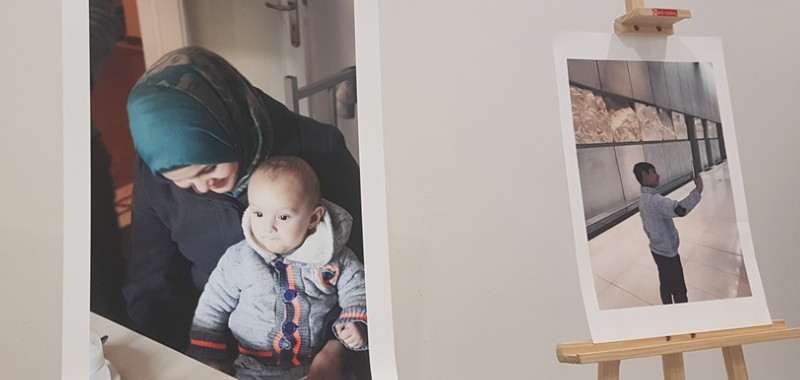
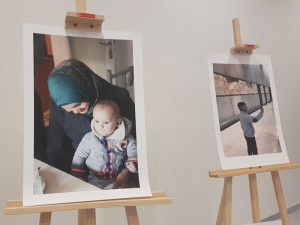 On the occasion of the “World Refugee Day“, an event entitled “You and I, and those who came after-We are all citizens” took place at the Serafion Center of the Municipality of Athens (22 June 2019). Humanitarian organizations, self-governing bodies and migrant-refugee communities as well as many citizens participated in the event which was open to the general public. Among them were the WEMIN implementation bodies in Greece, HOU-DAISSy Research Group (Coordinator) and Olympic Training & Consulting Ltd (partner).
On the occasion of the “World Refugee Day“, an event entitled “You and I, and those who came after-We are all citizens” took place at the Serafion Center of the Municipality of Athens (22 June 2019). Humanitarian organizations, self-governing bodies and migrant-refugee communities as well as many citizens participated in the event which was open to the general public. Among them were the WEMIN implementation bodies in Greece, HOU-DAISSy Research Group (Coordinator) and Olympic Training & Consulting Ltd (partner).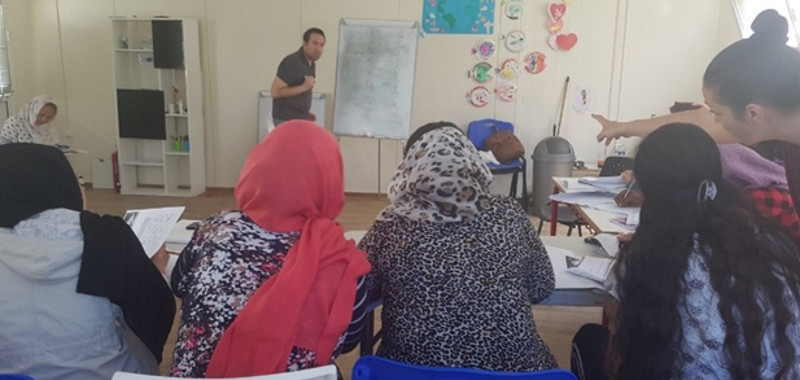
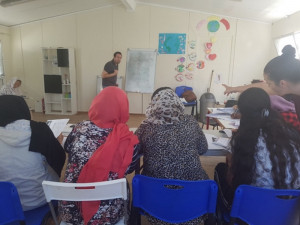
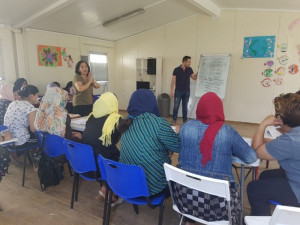
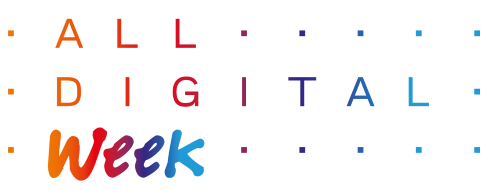

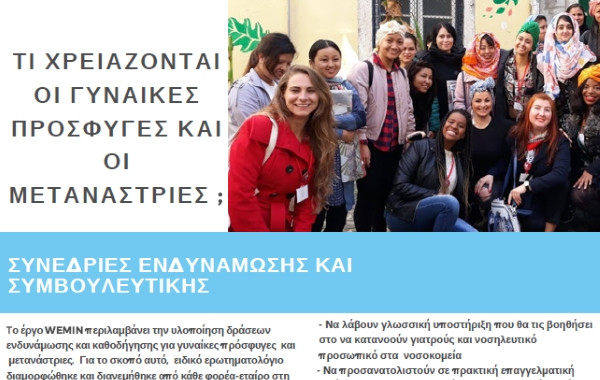
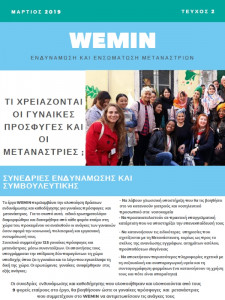
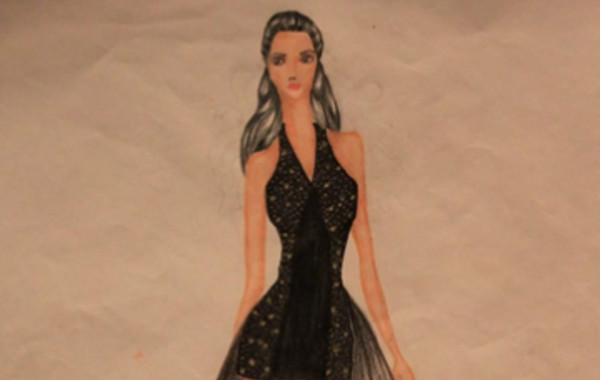
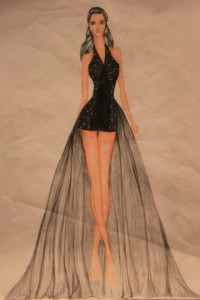 “Bahar” has been trained as a seamstress in Iran, following her mother’s profession and will. Although she didn’t like it in the beginning, her job experience in a well-known designer made her change her attitude. Realizing her talent and skills, she decided to attend a school for fashion design. It was not an easy decision, since in order for her to find the money to pay the fees, she had to persuade her previous boss to give her a loan. Her boss loaned her the money but to assure that “Bahar” would pay her back, she kept her passport. Until today, she hasn’t taken it back.
“Bahar” has been trained as a seamstress in Iran, following her mother’s profession and will. Although she didn’t like it in the beginning, her job experience in a well-known designer made her change her attitude. Realizing her talent and skills, she decided to attend a school for fashion design. It was not an easy decision, since in order for her to find the money to pay the fees, she had to persuade her previous boss to give her a loan. Her boss loaned her the money but to assure that “Bahar” would pay her back, she kept her passport. Until today, she hasn’t taken it back.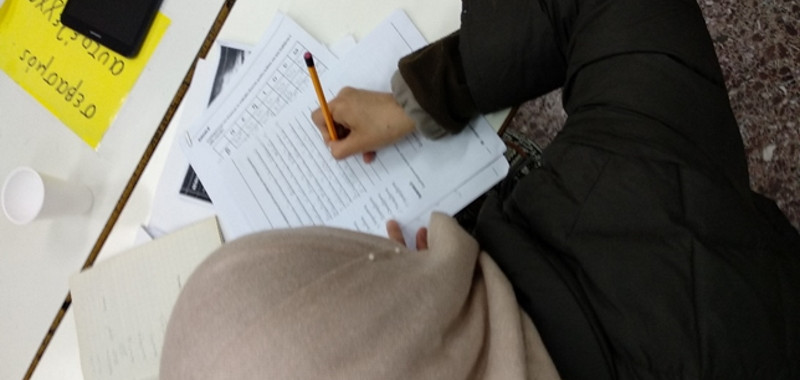
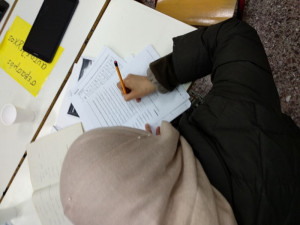 Hamia is from Algeria. She is 40 years old, married with five children. She came in Greece in 2017, almost one and a half years ago, and her last child was born in Greece.
Hamia is from Algeria. She is 40 years old, married with five children. She came in Greece in 2017, almost one and a half years ago, and her last child was born in Greece.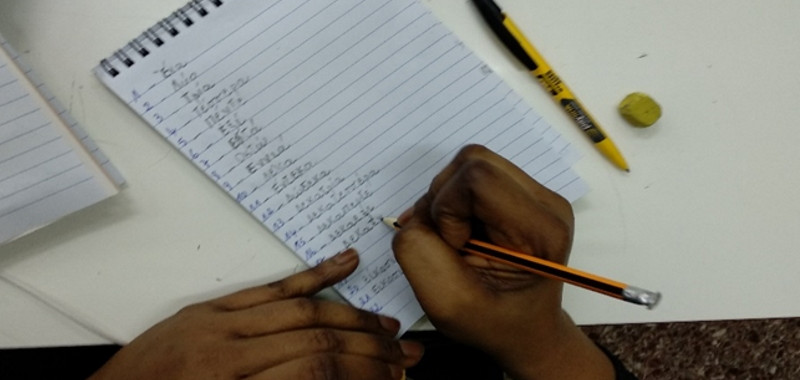
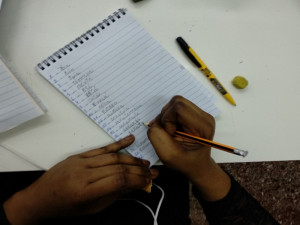 The story of “Marie” from Cameroon
The story of “Marie” from Cameroon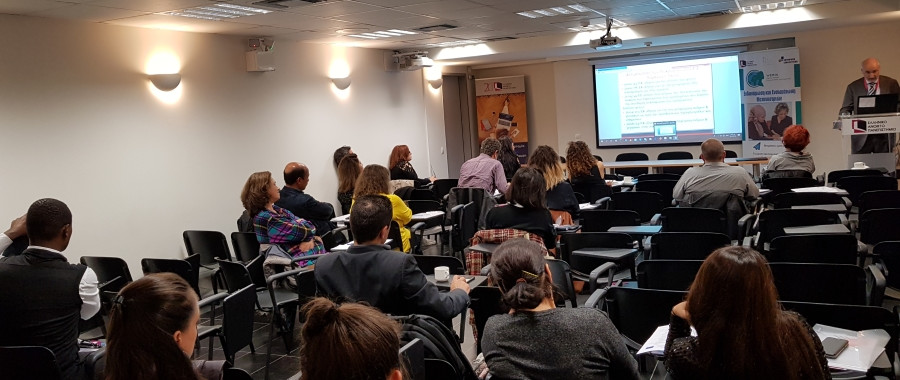
 Η Ερευνητική Ομάδα DAISSy του Ελληνικού Ανοικτού Πανεπιστημίου συντονίζει το έργο
Η Ερευνητική Ομάδα DAISSy του Ελληνικού Ανοικτού Πανεπιστημίου συντονίζει το έργο 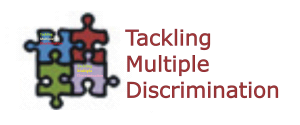 Όπως ανέφερε ο Δρ. Σαρρής, η καταπολέμηση των διακρίσεων αποτελεί βασικό αντικείμενο διεθνών οργανισμών και εθνικών κρατών. Σύμφωνα με έρευνα του ΕΚΚΕ που διεξήχθη το 2017, οι ερωτώμενοι ανέφεραν ότι γίνονται διακρίσεις συχνά και πολύ συχνά με βάση την εθνική προέλευση ( 76,5%), τον σεξουαλικό προσανατολισμό ( 70,5%) και την αναπηρία (58,1%). Σημαντικό εύρημα της έρευνας ήταν ότι το 75% των ερωτηθέντων δεν γνωρίζει τον νόμο για τις πολλαπλές διακρίσεις, το 83,7% δεν κατήγγειλε το περιστατικό πολλαπλής διάκρισης με την πλειονότητα αυτών (55%) να δηλώνει ότι δεν πίστευε ότι θα βρει το δίκιο του, ενώ από αυτούς που κατήγγειλαν το περιστατικό το 61,9% δηλώνει ότι δεν βρέθηκε λύση. Η ανωτέρω έρευνα διεξήχθη στο πλαίσιο του έργου «Καταπολέμηση των πολλαπλών διακρίσεων στην Ελλάδα: Προώθηση της ισότητας μέσω της ενεργητικής συμμετοχής και της διαμόρφωσης πολιτικών», το οποίο συντονίζεται από το Εθνικό Κέντρο Κοινωνικών Ερευνών και στο οποίο συμμετέχουν η ερευνητική ομάδα DAISSy του ΕΑΠ, μαζί με το Πανεπιστήμιο της Σεβίλλης, την Οικονομική και Κοινωνική Επιτροπή (ΟΚΕ) και την η Περιφέρεια Κρήτης. Το έργο αυτό χρηματοδοτείται κατά 80% από το Ευρωπαϊκό πρόγραμμα Rights, Equality and Citizenship (REC) της Ευρωπαϊκής Ένωσης και κατά 20% από ίδιους πόρους.
Όπως ανέφερε ο Δρ. Σαρρής, η καταπολέμηση των διακρίσεων αποτελεί βασικό αντικείμενο διεθνών οργανισμών και εθνικών κρατών. Σύμφωνα με έρευνα του ΕΚΚΕ που διεξήχθη το 2017, οι ερωτώμενοι ανέφεραν ότι γίνονται διακρίσεις συχνά και πολύ συχνά με βάση την εθνική προέλευση ( 76,5%), τον σεξουαλικό προσανατολισμό ( 70,5%) και την αναπηρία (58,1%). Σημαντικό εύρημα της έρευνας ήταν ότι το 75% των ερωτηθέντων δεν γνωρίζει τον νόμο για τις πολλαπλές διακρίσεις, το 83,7% δεν κατήγγειλε το περιστατικό πολλαπλής διάκρισης με την πλειονότητα αυτών (55%) να δηλώνει ότι δεν πίστευε ότι θα βρει το δίκιο του, ενώ από αυτούς που κατήγγειλαν το περιστατικό το 61,9% δηλώνει ότι δεν βρέθηκε λύση. Η ανωτέρω έρευνα διεξήχθη στο πλαίσιο του έργου «Καταπολέμηση των πολλαπλών διακρίσεων στην Ελλάδα: Προώθηση της ισότητας μέσω της ενεργητικής συμμετοχής και της διαμόρφωσης πολιτικών», το οποίο συντονίζεται από το Εθνικό Κέντρο Κοινωνικών Ερευνών και στο οποίο συμμετέχουν η ερευνητική ομάδα DAISSy του ΕΑΠ, μαζί με το Πανεπιστήμιο της Σεβίλλης, την Οικονομική και Κοινωνική Επιτροπή (ΟΚΕ) και την η Περιφέρεια Κρήτης. Το έργο αυτό χρηματοδοτείται κατά 80% από το Ευρωπαϊκό πρόγραμμα Rights, Equality and Citizenship (REC) της Ευρωπαϊκής Ένωσης και κατά 20% από ίδιους πόρους.